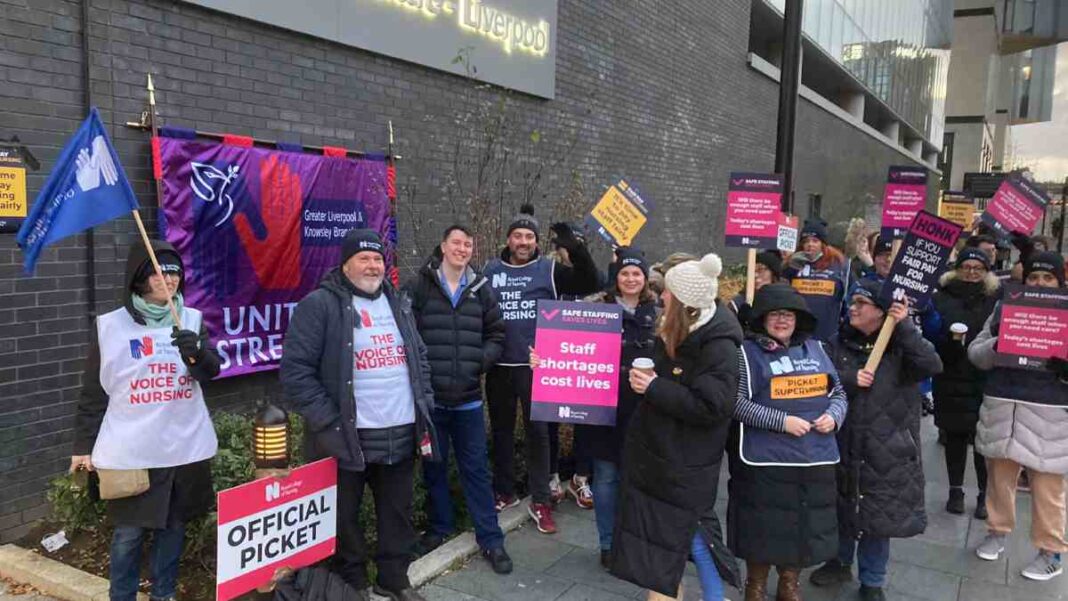UNITED KINGDOM: Thousands of ambulance workers in England and Wales will strike over pay on Wednesday, increasing the strain on a state-funded health service a day after nurses walked out, with hospital bosses saying the action would put patients at risk.
The government said the “deeply regrettable” strike would result in fewer ambulances on the road.
Thousands of nurses in England, Wales, and Northern Ireland have joined the strongest wave of industrial action in Britain in a generation by going on strike, and Prime Minister Rishi Sunak has vowed to defend his position.
Industrial action, which has gotten worse in the weeks running up to Christmas, is having an effect on important services throughout Britain, including rail travel, Christmas card deliveries, and passport checks at airports.
The first time nurses have ever launched a statewide strike, the nurses’ strike on Tuesday was the second of two days of industrial action as workers struggle to maintain their quality of living in the face of skyrocketing inflation.
On Wednesday, there will be a day-long ambulance worker strike after this.
Employees in the UK’s taxpayer-funded sector have endured pay restraint for at least ten years as conservative governments in power tried to “balance the books” by regularly freezing or restricting their salaries.
According to unions, a lot of individuals are finding it difficult to cope with the 40-year high inflation rate. The Royal College of Nursing (RCN) asserts that some of its members have been compelled to utilize food banks, which provide donations of basic groceries on behalf of charities.
The fragile status of the system, which is trying to deal with a massive backlog of patients waiting for care while dealing with unprecedented strains brought on by the Covid epidemic, has been brought up by all four unions engaging in this week’s NHS action.
NHS employees have been given a wage increase of at least £1,400 each, which equates to an average pay increase of 4% for nurses. However, they are requesting a pay increase that, at the very least, maintains up with the double-digit UK inflation rate.
NHS executives have warned that they are losing personnel to other industries, such as supermarkets, despite the economy’s average salary expanding at 6% per year and many firms struggling with a labour shortage.
Public sector employees from a variety of departments, including border guards who check passports at ports and airports and driving test examiners, will join NHS personnel in initiating a staggered strike action over the coming weeks.
They are joining the postal and rail workers who have been engaging in industrial action over pay and conditions for several months.
Nurses have said they could continue to protest for months if they think it’s necessary, but a lot will likely depend on which side can keep the public’s support.
Sunak’s administration is undoubtedly unpopular: with a general election scheduled for 2024; the Conservatives are trailing the opposition Labour party by about 20 percentage points.
However, it indicates a fall in support for a party that has been in control for 12 years. That’s an improvement from the 30 points recorded at one point during Truss’s tenure as president.
Also Read: British Nurses Plan Unprecedented Strike over Appalling Pay



